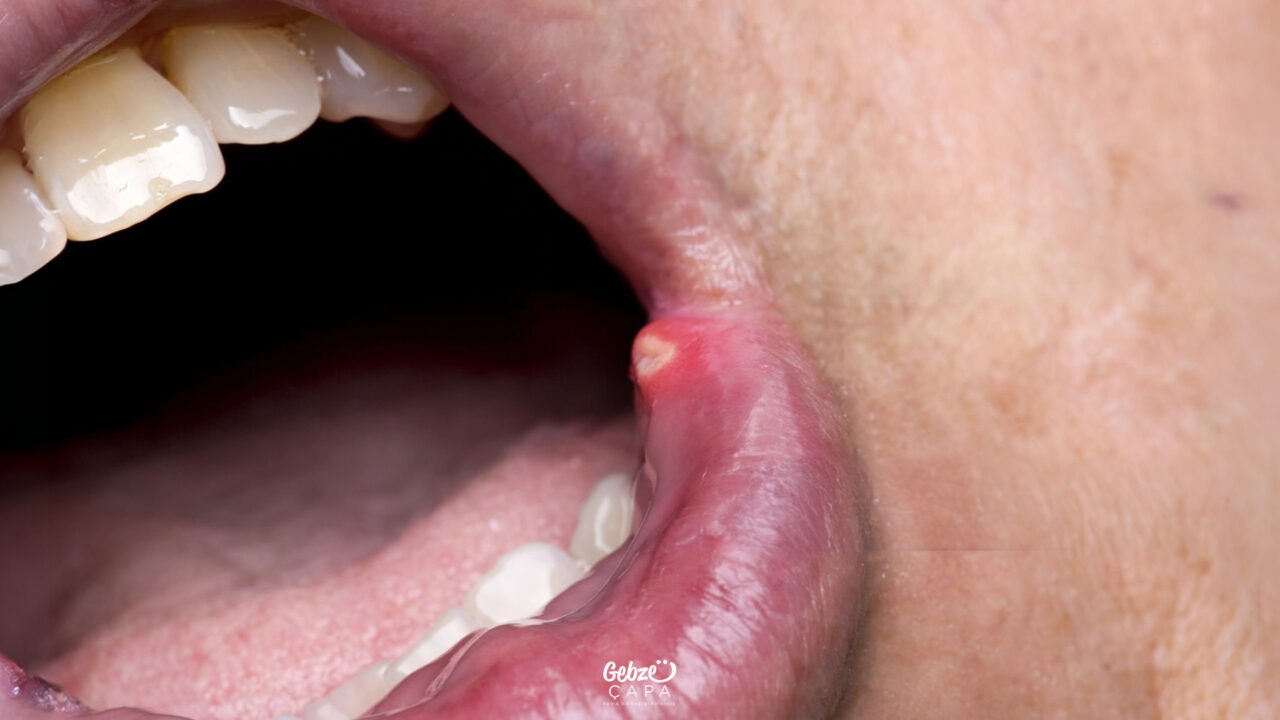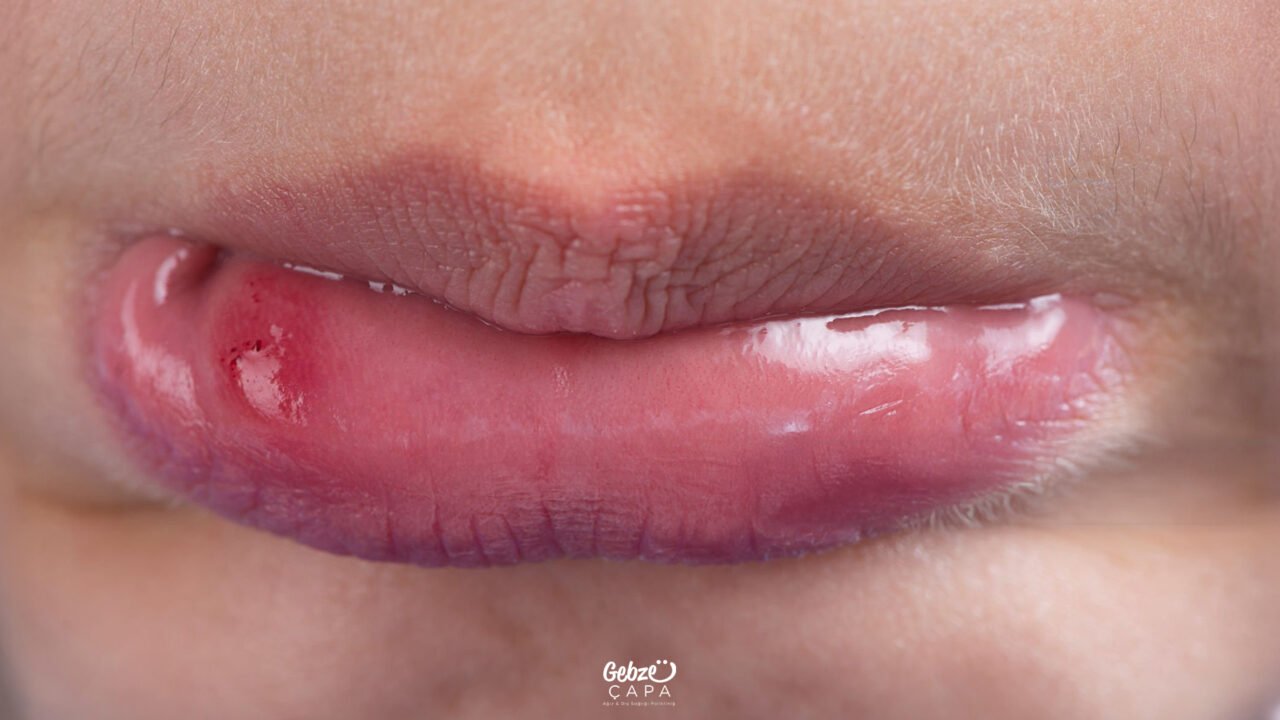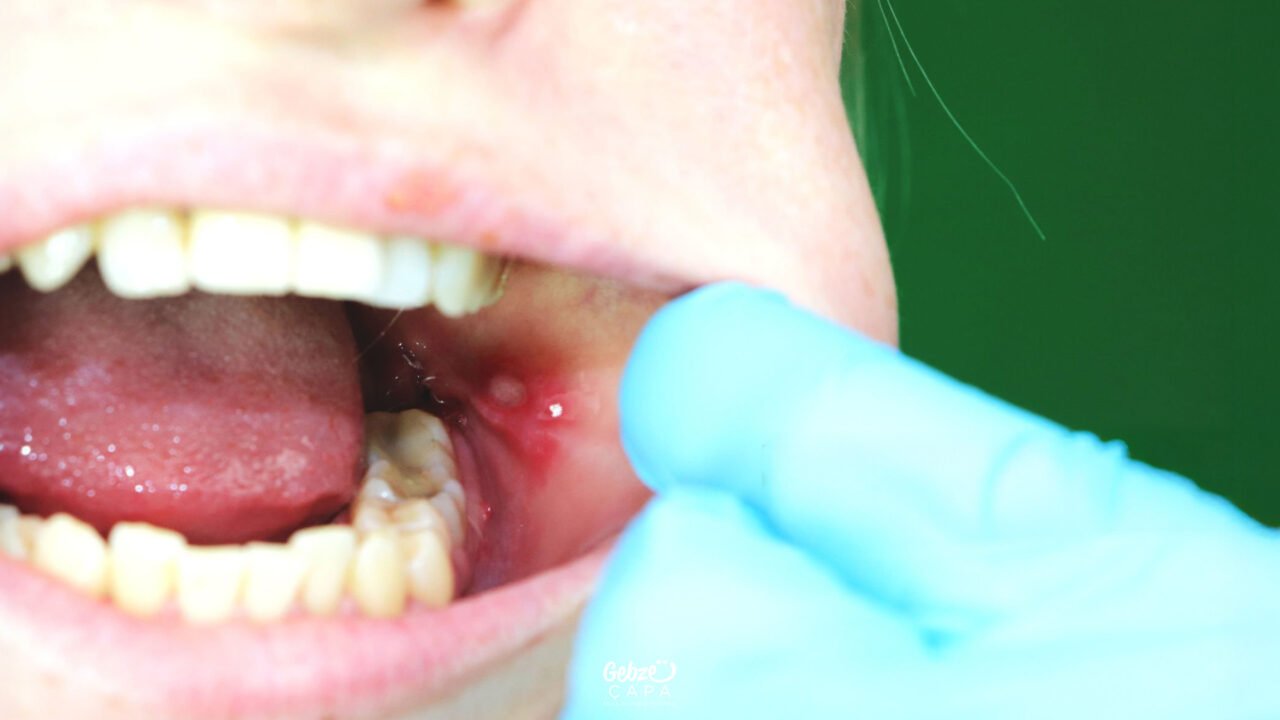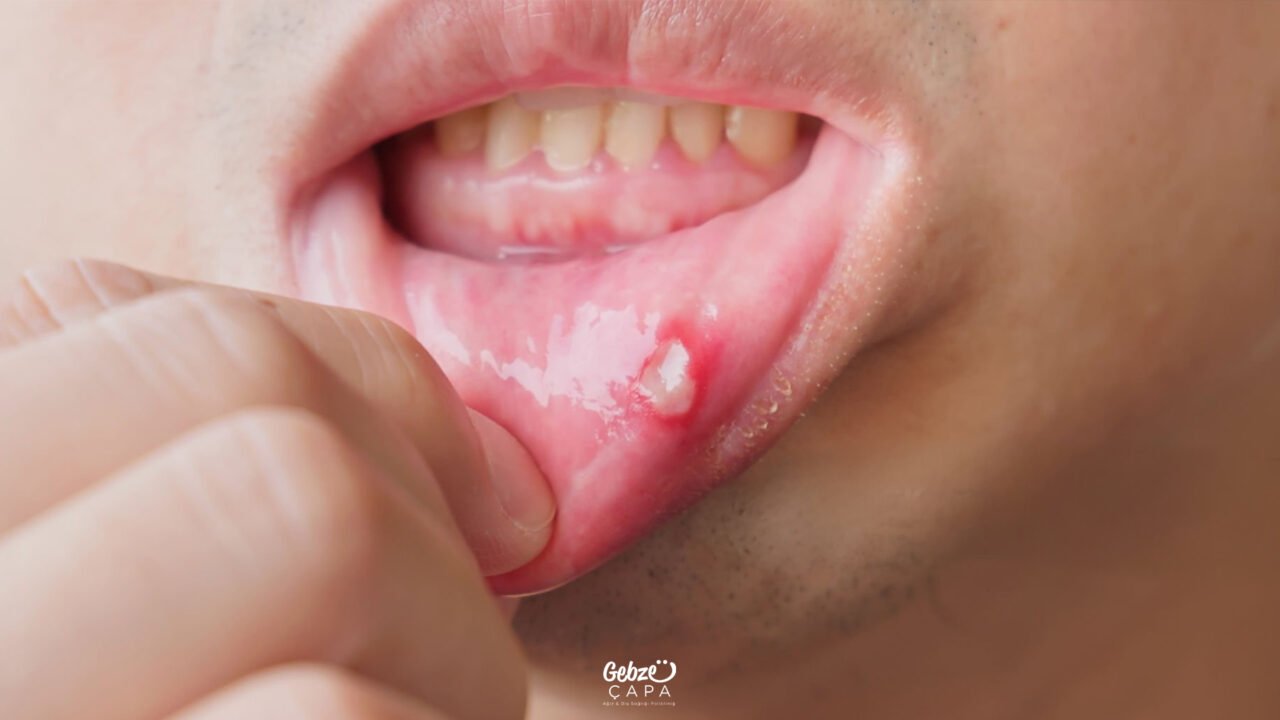What is a Mouth Sore? How to treat mouth sores?
While mouth sores may seem like a minor issue, they can be quite distressing and significantly impact a person’s quality of life. They often appear unexpectedly, causing pain when eating, drinking, or even simply talking, making daily life difficult. These minor sores, which may seem insignificant at first, can cause both physical discomfort and psychological distress, especially when they recur.
Just think, feeling a burning pain in your mouth while eating your favorite food, or even feeling a burning sensation when drinking water… This can even negatively impact a person’s social life. Sometimes it makes it difficult to converse with friends, and sometimes it causes a loss of appetite. In other words, mouth sores go beyond being a simple health problem and become a problem that directly impacts daily routines and the comfort of life.
Moreover, the exact cause of these sores is often unclear. Stress, a weakened immune system, vitamin deficiencies, or minor trauma to the mouth can trigger this process. Regardless of the cause, dealing with mouth sores requires patience. Fortunately, today, there are many methods available to accelerate healing, reduce pain, and prevent recurrence.
What are Mouth Sores?
Mouth sores are a common problem, yet many people struggle to fully express their discomfort. These small ulcers, known medically as canker sores, can be much more bothersome than we think. They typically appear on the inside of the lip, inside the cheek, tongue, palate, or gums. They can be white, yellowish, or gray in appearance and are often surrounded by a red, pus-filled ring. While this sore may seem minor and innocuous, it can cause pain even when eating, speaking, or drinking, directly impacting a person’s quality of life.
The most common type of mouth sores are aphthous ulcers. These are a common occurrence for a large portion of the population, occurring at some point in their lives. Importantly, these sores are not contagious. This means they cannot be spread from one person to another through kissing, drinking from the same glass, or close contact. While this may confuse many, canker sores are a completely individual condition.

However, the development of mouth sores is often directly related to the immune system. Stress, lack of sleep, poor nutrition, vitamin and mineral deficiencies, or periods of stress can all contribute to the development of canker sores. In some cases, recurring mouth sores can even provide clues about a person’s overall health. Therefore, those experiencing frequent mouth sores should heed these signals from their body rather than dismissing them as a simple ailment.
What Causes Mouth Sores?
Mouth sores don’t have a single cause; they usually occur when multiple factors come together. Sometimes even a simple cause can trigger them, while other times, they can develop in conjunction with the body’s overall health. In short, both internal (immunity, hormones, genetic predisposition) and external (trauma, eating habits) factors play a role in the development of these bothersome sores. Here’s a closer look at the most common causes of mouth sores:
Stress and Fatigue
With the hustle and bustle of daily life, workload, or personal problems, stress has become an inevitable factor in most people’s lives. Stress directly affects not only mental health but also the immune system. When the body’s defenses are weakened, mouth sores can appear much more easily. It’s not surprising that canker sores appear, especially during busy periods when fatigue is added.
Vitamin and Mineral Deficiencies
Diet plays a significant role in oral health. Deficiencies in vitamin B12, folic acid, iron, and zinc, in particular, predispose to canker sores. Deficiencies in these vitamins and minerals both weaken the immune system and hinder the regeneration of oral tissues. Therefore, it’s highly beneficial for people who frequently experience mouth sores to have their blood levels checked.
Trauma
One of the simplest causes of mouth sores is mechanical irritation. Accidentally biting your cheek, chewing a very hard food, or even burning your mouth with something hot can cause a sore. Furthermore, braces or ill-fitting dentures can also irritate the inside of your mouth, leading to canker sores. So, sometimes a mouth sore is the result of a completely everyday and unavoidable minor accident.

Hormonal Changes
Hormonal fluctuations in women are a significant factor in the development of mouth sores. Hormonal changes, particularly before or during menstruation, can lead to more frequent mouth sores. In some women, this can even manifest as recurring mouth sores every month.
Weak Immune System
The immune system is the body’s strongest line of defense. However, when this system is weakened by illness, malnutrition, stress, or chronic health problems, mouth sores become more common. Frequent canker sores during periods of low immunity are essentially the body’s message, “I need rest and strength.”
Certain Foods
Dietary habits can also play a role in the development of canker sores. Overly acidic, spicy, or salty foods irritate the oral mucosa and can trigger canker sores. Furthermore, certain foods, such as tomatoes, chocolate, coffee, and citrus fruits, can predispose to canker sores in sensitive individuals. So, while they may seem innocent, these foods can be a significant trigger for some individuals.
Genetic Factors
Predisposition to canker sores can also be passed down genetically. It’s known that people with a family history of frequent canker sores are at a higher risk. In other words, sometimes, despite a healthy diet, adequate rest, and careful attention, canker sores can develop entirely due to genetic inheritance.
Mouth Sore Symptoms
The most distinctive feature of mouth sores is a small but quite painful ulcer. However, before the sore fully develops, some preliminary symptoms may be noticeable. The process typically begins with a burning, stinging, or slight tingling sensation in the mouth, followed shortly by the formation of an inflamed, red area. Then, within 2-3 days, a small white or yellow sore appears in the center of this area.
While the sore itself may be small, the discomfort it causes can be significant; the pain increases with eating, talking, and even drinking. Larger canker sores can affect not only the mouth but also the entire body; for example, they may be accompanied by swollen lymph nodes or a feeling of weakness. In short, while mouth sores may seem like a minor problem, their symptoms can seriously complicate a person’s daily life.

How to Heal a Mouth Sore?
Mouth sores generally tend to heal on their own and in most cases, they resolve within 1-2 weeks. However, this process can be quite challenging, especially in the early days when the pain is intense. Therefore, it’s possible to use certain methods to both relieve pain and accelerate healing.
One of the most practical and effective home remedies is gargling with salt water. Salt promotes the healing process by inhibiting the growth of bacteria on the sore. Furthermore, a baking soda mouthwash balances the acidity in the mouth, helping the sore heal faster. For those seeking more natural solutions, honey and coconut oil are very soothing; thanks to the antibacterial properties of these two products, applying them to the sore reduces both pain and the risk of infection. Applying a cold compress, holding ice cubes in the mouth for a short time, also temporarily relieves pain and provides immediate relief.
Additionally, some over-the-counter products sold in pharmacies can also support pain management and healing. Mouthwashes, sprays, and gels cover the sore, reducing pain and making eating easier. Topical pain-relieving gels, in particular, provide significant comfort when used immediately before meals.
If the cause of mouth sores is vitamin and mineral deficiencies, superficial treatments alone may not be sufficient. In this case, taking B12, iron, folic acid, or zinc supplements under a doctor’s supervision is highly beneficial. When the deficiencies are addressed, sores are less likely to appear and heal more quickly.
In some people, canker sores may recur much more frequently, become larger, and become painful. In such cases, it’s essential to consult a doctor. If deemed necessary, a doctor may recommend cortisone medications, immune-supporting treatments, or other medical approaches. These interventions are particularly effective for mouth sores that become chronic and significantly impair quality of life.


